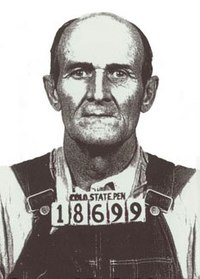Colorado marijuana dispensaries made huge sales in the first week of legal recreational marijuana. Owners of the 37 new dispensaries around the state reported first week retail sales to The Huffingto n Post that, when added together, were roughly $5 million. That’s a lot of green for Colorado’s legal weed.
n Post that, when added together, were roughly $5 million. That’s a lot of green for Colorado’s legal weed.
Colorado, the first state to allow retail recreational marijuana sales to adults age 21 and older, has projected nearly $600 million in combined wholesale and retail marijuana sales annually. The state, which expects to collect nearly $70 million in tax revenue from pot sales this year, won’t have its first official glimpse at sales figures until Feb. 20, when businesses are required to file January tax reports, according to Julie Postlethwait of the state Marijuana Enforcement Division.
Denver’s 9News was first to report statewide retail sales on New Year’s Day, the first day legal pot shops were allowed to operate, exceeded $1 million. Interest dropped in the days that followed, according to shop owners, but many reported customers still waiting in lines out the door.
“Every day that we’ve been in business since Jan. 1 has been better than my best day of business ever,” Andy Williams, owner of Denver’s Medicine Man dispensary, told The Huffington Post.
Owners of larger shops told HuffPost they sold from 50 pounds to 60 pounds of marijuana in the first week. Smaller shops sold 20 pounds to 30 pounds, proprietors said.
Under state law, Colorado residents may legally buy up to one ounce of marijuana in a transaction. Tourists can purchase up to one-fourth ounce.
But the initial rush to buy legal weed was so great that many shops imposed caps on the amount each customer could buy, or raised prices to curb demand and stave off a possible shortage. So far, none of the retailers reported supply problems.
Prices also were boosted by the state’s 25 percent tax on retail purchases, including a 15 percent excise tax and a 10 percent sales tax. Voters approved the levy in November. Local taxes can add more to what customers pay.
Shop owners said their sales were biggest the first day. Each day since, sales have been roughly half the New Year’s Day volume, the business owners said.
One-eighth of an ounce of marijuana was selling for an average of $65 around the first of the year, according to Marijuana.com.
Despite the surging sales, Joaquin Ortega, co-owner of Denver Kush Club dispensary, was quick to note to HuffPost that federal laws against marijuana sales and possession present obstacles to Colorado’s legal retailers. The Justice Department has said it won’t challenge legalization laws in Washington state and Colorado as long as the states prevent out-of-state distribution, sales to minors and drugged driving, among other conditions.
Still, the federal prohibition means banks won’t accept marijuana businesses for traditional bank accounts, and retailers said they can’t take advantage of traditional business tax writeoffs.
“People think we all became millionaires,” Ortega said. “But as a business owner, I can’t write anything off for the last three years.”
Banks have said they fear they could be implicated as money launderers if they offer traditional banking services to the pot businesses.
Marijuana businesses often cannot accept credit cards, leaving them to conduct transactions in cash. They say that’s a burden for taxes and payroll, and a safety risk.
Monday night, Denver City Council urged banking regulators to grant Colorado marijuana businesses access to the federal banking system, so they can use the same banking services as other businesses.
Rep. Ed Perlmutter (D-Colo.) is seeking reformed access to banking for marijuana businesses with his Marijuana Business Access to Banking Act (H.R. 2652), which would create protections for banks that offer services to state-sanctioned marijuana-related businesses.
“The banking legislation sponsored by Congressman Ed Perlmutter is a common sense approach to bring financial legitimacy to the legal marijuana industry,” Denver City Councilman Albus Brooks told HuffPost. “It’s ludicrous and unsustainable to force large neighborhood businesses to operate entirely with cash. Congress needs to act, and act now.”
The Wall Street Journal reported Monday that the Department of Justice is also drafting legal guidance on how banks can work with marijuana businesses in states like Colorado and Washington, which both legalized recreational marijuana for adults 21 and over.
Dispensaries in Washington state are expected to open later in 2014.
Source: Huffington Post (NY)
Author: Matt Ferner
Published: January 8, 2014
Copyright: 2014 HuffingtonPost.com, LLC
Contact: [email protected]
Website: http://www.huffingtonpost.com/












